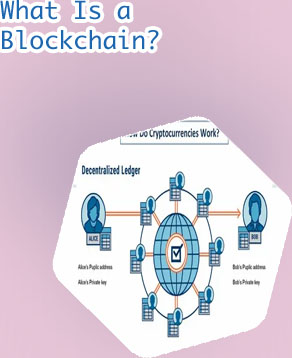Decentralized crypto
The Bitcoin Origin Story
As the harbinger of the cryptocurrency era, Bitcoin is still the coin people generally reference when they talk about digital currency. Its mysterious creator — allegedly Satoshi Nakamoto — debuted the currency in 2009 and it’s been on a roller-coaster ride since then. However, it wasn’t until 2017 that the cryptocurrency broke into popular consciousness. What is blockchain and cryptocurrency Bitcoin is an unregulated, digital currency. Bitcoin uses blockchain technology as its transaction ledger.
What is a blockchain in crypto
Many cryptocurrencies are built on blockchain technology, which is a distributed ledger enforced by a distributed network of computers. Cryptocurrencies are distinguished from fiat currencies like the United States dollar or the British pound because any central authority does not issue them, making them potentially impervious to government intervention or manipulation. What is Blockchain? Decentralisation is one of the core principles of the very idea of cryptocurrencies, but the level of decentralisation can vary greatly among different projects. In this article, we'll break down which cryptocurrencies can be considered decentralised and provide a list of the most decentralised crypto coins.

What is cryptocurrency trading and how does it work?
The term Bitcoin, for example, is used interchangeably to refer to both the blockchain and the cryptocurrency, but they remain as two separate entities. The very first blockchain application appeared in 2009 as Bitcoin, a crypto system using the distributed ledger technology. This also marked Bitcoin as the first “blockchain.” The aspect of blockchain being used to house this new digital currency is what brought both entities into association, and what led them quickly into the spotlight. The Bitcoin blockchain describes only the technology in which the currency is housed, while the Bitcoin cryptocurrency describes only the currency itself. Why is there so much hype around blockchain technology? Disadvantages. The disadvantages of private blockchains include the controversial claim that they aren't true blockchains, since the core philosophy of blockchain is decentralization. It's also more difficult to fully achieve trust in the information, since centralized nodes determine what is valid. The small number of nodes can also mean less security. If a few nodes go rogue, the consensus method can be compromised.
Cryptocurrency to turn private into blockchain
User Experience: DEXs are in early stages of development and can be challenging to use for those less familiar with decentralized blockchain technology. First, users need to familiarize themselves with external wallet platforms so they can interact with a DEX. Then, they must fund their wallet by transferring fiat or cryptocurrency. Finally, they need to link this wallet to the DEX interface to execute a trade. The process of depositing funds for trading is significantly more straightforward on a CEX. What Is Decentralized Finance (DeFi)? An expert in the evolution of knowledge creation at a time of accelerating technological change responded, “We need to get beyond this ridiculous phase of the blockchain hype cycle and start to develop the really useful applications of distributed and decentralized records and not get distracted by financial speculation, money laundering, and opportunism. Blockchain has a lot of potential, but it is not in NFTs and fill-in-the-blank-coin fake money.”

